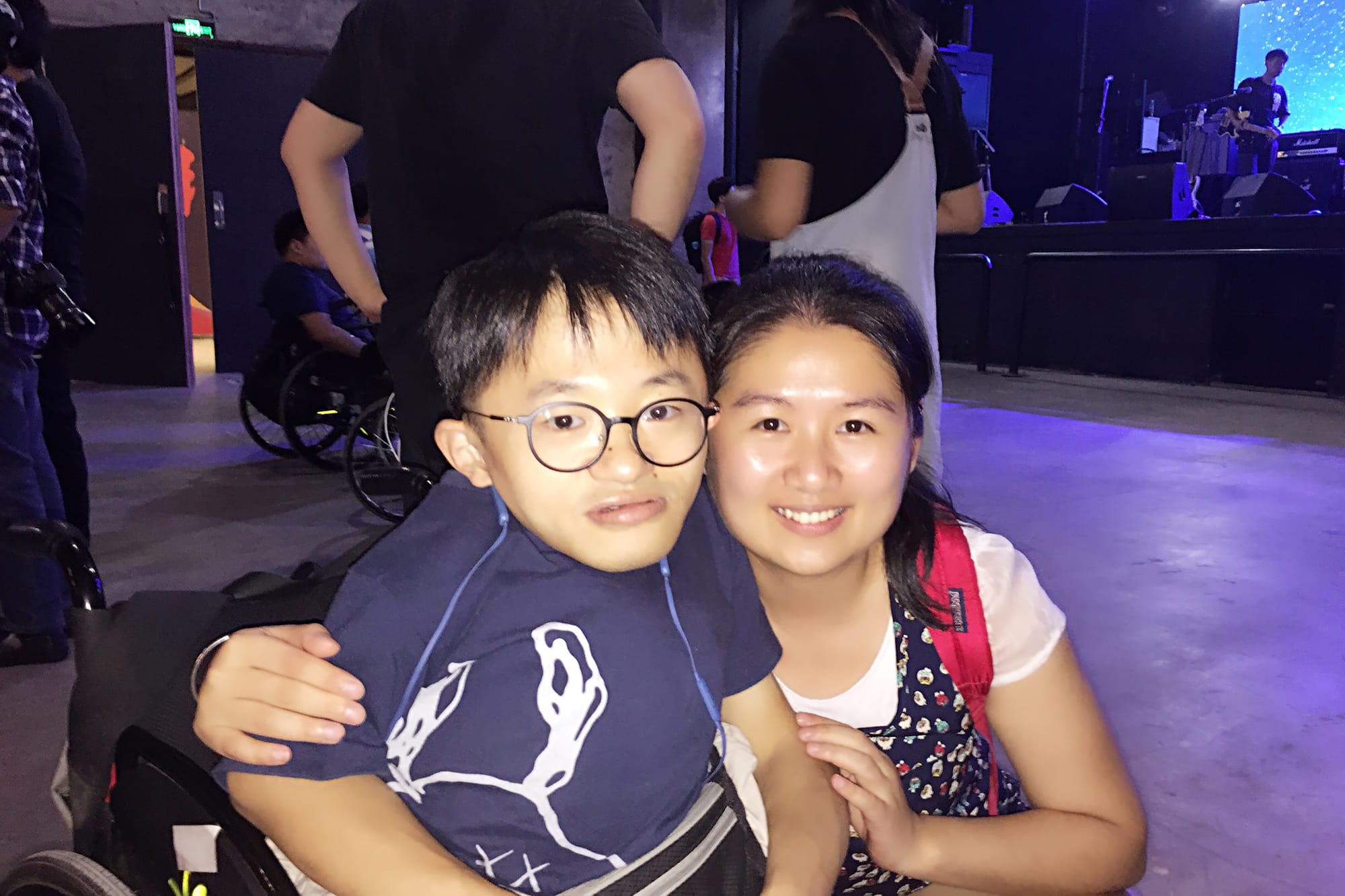Wonder Sir Founder on Pharma Success: The Importance of Early Investment and Trust in China

“In my capacity as a researcher, I've had experience in both scientific research and drug development. Additionally, as an educator in the field of rare diseases, I maintain close ties with patients and healthcare professionals. This enables me to possess a more comprehensive understanding of the patient care ecosystem, including the role of pharmaceutical companies, compared to those who concentrate solely on one facet. “ – Chen Yiwei
Kelly: Comprehensive solutions are vital to tackle the unique challenges facing the diagnosis and treatment of rare diseases. These solutions encompass medical technology development, public policy, multidisciplinary care, involvement of pharmaceutical firms, and funding. In addition to your work at Wonder Sir, you are dedicated to building bridges within this patient care ecosystem. What are the disconnects among stakeholders, and how can pharmaceutical companies improve?
Chen Yiwei: Your question is very insightful. I've noticed that a significant part of the challenge lies in the fact that different ecosystem stakeholders might not fully understand each other. There are often misconceptions between parties.

Consider this: In contrast to common diseases, rare diseases have received less attention in research. A key factor behind this is the limited awareness among researchers. Typically, researchers select projects aligned with their personal interests, and those interests are shaped by their awareness of particular issues. However, they might not be aware of many rare diseases, the complexities involved, and the number of unstudied conditions.
This deficiency in awareness also has repercussions on funding for rare disease research. Some might not be aware that a significant portion of research funding in China comes from the government, such as the National Natural Science Foundation. In contrast, research funding in foreign countries often derives from corporations or diverse sources. When the government allocates funding, it aligns with particular priorities. For instance, it tends to emphasize research into common diseases like cancer or cardiovascular disease due to their widespread impact and recognition. Yet, lesser-known and unstudied rare conditions may not register on the government’s radar. Thus, funding might not be directed towards rare diseases.
Doctors and patients also lack awareness. We have received many requests from patients and doctors through Wonder Sir’s WeChat account—patients describing their conditions, the type of doctors they were looking for, and doctors wanting to connect patients with an organization. So, I'm thinking of creating a platform, making it easier for everyone to find each other. If the efficiency of each part improves by just 10%, the overall improvement would be tremendous.
This is why, beyond science communication, I've been working on connecting these dots for the past two to three years, connecting people and showing them each other's capabilities.
The Role of Pharmaceutical Firms
Chen Yiwei: The ultimate hope of rare disease patients is that their disease can be treated or at least their lives can be saved. This relies heavily on drug development. In addition, many activities require resources and financial support within the patient care ecosystem. Yet, patient organizations often face funding constraints, doctors primarily depend on their salaries, and researchers might encounter difficulties securing government grants. If pharmaceutical firms can generate a healthy return, they have the potential to increase their investments, contributing to the growth and vitality of this ecosystem. So, pharmaceutical companies play a crucial role in this ecosystem.
From my engagements with major pharmaceutical firms in China, there is room for certain improvements.
An example of this is when pharmaceutical companies express interest in China. It typically is [right] before and after their drugs are introduced to the Chinese market. Pre-launch, their focus is enhancing public awareness and post-launch, they want to make the market bigger through doctor and patient education. So, their involvement tends to be concentrated within a relatively short timeframe. And they want to instigate significant changes during this time.
This might be due to the fact that their China affiliates primarily emphasize marketing and sales. Their key performance indicators (KPIs) revolve around these aspects and [are likely short-term in nature].
Sometimes, companies approach me, hoping my content could be part of their marketing. Their challenge often stems from their first round of patient education falling short of the expectations (i.e., KPIs). Now, they find themselves in the second phase of education, with their drugs already on the market for a year or two. They find it very hard to achieve their Key Performance Indicators.
It could be more effective if these companies start two or three years earlier and invest in nurturing the market. Changing perceptions takes time. It's like a drop of water wearing away a stone. It might start off slower initially, but that initial period is crucial for substantial growth. It requires a considerable investment upfront to achieve everything at once. But most companies don't have [that kind of] budget. By getting involved earlier, allowing more time, and making gradual investments over time, the end return might be exponential and may not cost as much.
They could also broaden their investment focus from merely educating doctors to empowering patients and patient groups.
In this ecosystem, the most motivated segment is the patients because if they don't push, their lives might be limited, or their children's lives might be limited. They have the most motivation to act. I believe the impact it can create with the right empowerment would be enormous.
Look at the Orphan Drug Act in the United States. It became law because patient communities tirelessly pushed for it. Unfortunately, there haven't been many truly influential patient organizations in China. However, this is an area pharmaceutical companies can help improve.
I also hope pharmaceutical companies can widen their scope of interest. When we engage in charity projects, like advocating for rare diseases as a collective concern rather than just focusing on a few diseases, it’s because we perceive it as a systemic issue. If we have to fragment our efforts across 7,000 diseases, it becomes exceedingly challenging to generate public awareness.
But I've encountered many pharmaceutical companies saying, "I'm only interested in this disease, so I won't invest in such projects." Well, I find that quite frustrating. The main rule in business is still trust. If I establish trust in my business, my costs will naturally decrease. I also hope everyone can focus more on the public good in the rare disease field.
Also, within China, larger pharmaceutical companies should work on strengthening their patient services function. Internationally, these companies hold a deep respect for their patients. When patients collaborate, they often provide special treatments and added convenience. However, in China, their attitude towards patients can be less respectful. Patients are sometimes viewed as a means to an end. This could be attributable to their China offices' lack of patient services function. I've discussed this issue with many patient organization leaders. I advised them that they could consider reaching out to the global headquarters on this issue.
If you missed it, here is part one of my conversation with Chen Yiwei, where we discussed China’s rare disease definition and recent policy development on foreign CGT investment.
About Chen Yiwei
Founder of the Genetic and Rare Disease Science Popularization Platform "豌豆Sir"
2022 Ginkgo Fellow
Distinguished Research Fellow at the CEIBS Research Center for Smart Healthcare
Council Member of the Shanghai Foundation for Rare Diseases
Secretary-General of the Academic Board of Orphan Drug, China Biomedical Industry Chain Innovation and Transformation Alliance
Graduated with a bachelor's degree from the Chinese University of Hong Kong, obtained master's and doctoral degrees from Heidelberg University in Germany, and has over ten years of experience in genetics and gene therapy research and development. In 2016, initiated the Genetic and Rare Disease Science Popularization Platform "豌豆Sir."
Currently serves as the founder of the Chinese Medical and Research Network of Lesch–Nyhan syndrome (LNS), council member of DEBRA China, member of the Academic Committee of the "Chinese Medical Case Repository," member of the Genetics and Reproductive Special Committee of the Cross-Straits Medicine Exchange Association, member of the Genetics and Developmental Diseases Branch of the China International Exchange and Promotive Association for Medical and Health Care, and member of the Clinical Genetics and Genetic Counseling Special Committee of the Shanghai Society of Genetics.
About 豌豆Sir (Wonder Sir):
Established in 2016 by Dr. Chen Yiwei as a leading genetic and rare disease science popularization platform in China, its mission is to "make the rare seen." Over the past seven years, in collaboration with dozens of clinical experts in the rare disease field, it has provided services to nearly a hundred rare disease patient organizations in China. It received the Outstanding Contribution Award from "Guokr Science Popularization" in 2020 and the Rare Disease Industry Contribution Award from the "Golden Snail Award" in 2022. It is one of the most influential scientific communication platforms in the field of rare diseases in China.





